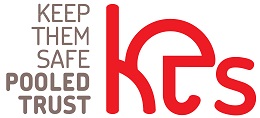This article is not intended to provide you with legal advice. Should you seek legal advice, please consult an attorney. KTS would gladly recommend an attorney should you need one. It’s important to have an attorney take appropriate actions on your behalf and to avoid issues that may be discussed in this article.
Applying for Medicaid in New York State? New York State Medicaid is a program available to eligible, low-income New York State residents who require additional help paying for their medical expenses. This joint state and federal government program provides health care insurance to people with limited income and assets.
New York Medicaid is available to all New York State residents who are legal citizens, and who meet certain eligibility requirements. Medicaid is the most widely used medical assistance program in the United States. Coverage will only be granted to people in qualifying situations.
Although Medicaid is a federal program with guidelines that all states must follow, each state is able to set its own eligibility for Medicaid requirements, rules, and regulations. This article outlines the specific guidelines for New York State residents, the eligibility requirements, and how to apply for Medicaid. It also lists the robust benefits that approved Medicaid applicants will be able to use.
By gaining a thorough understanding of the application process, applicants can ensure that they will be approved for coverage if they’re eligible. Once you’re approved, knowing the wide range of benefits that are available is key to making the most of your Medicaid coverage.
Applying for Medicaid? Who is eligible?
Medicaid is available to children, adults, disabled people, senior citizens, and people who receive Supplemental Security Income (SSI). Any New York State resident who meets the following criteria may apply for Medicaid coverage.
When applying for Medicaid, first, applicants must be residents of New York State. Second, they must meet immigration status requirements by either being US citizens, US nationals, or legal aliens. However, pregnant women who require prenatal care and individuals who need emergency medical treatment who are not US citizens or legal aliens may be eligible. Third, because Medicaid is a means-based program, coverage is only available to low-income individuals whose financial situation makes them unable to pay for medical expenses.
If the residency and citizenship requirements are met, the next qualifiers the state looks at to determine eligibility are household size and household income. This will determine whether individuals applying for Medicaid qualify at no cost to them, if they are eligible but will need to pay co-payments, or if they’ll be disqualified from receiving any Medicaid benefits.
Federal Poverty Level (FPL)
The Federal Poverty Level (or FPL) is taken into account when determining Medicaid eligibility. Medicaid is available to people whose annual income is up to 138% of the Federal Poverty Level or FPL, although this number is not solely determined by annual household income. The size of the household–or the number of members of the household that subsist on that income–is also taken into consideration. Also, this number is different for women who are pregnant; their income may not exceed 218% of the FPL.
People who are 65 years old or older adults, those who are legally blind, those who are disabled, pregnant women, and children may be eligible for benefits even when their excess income exceeds the limits set forth by the state. However, keep in mind that assets will be taken into consideration when determining Medicaid eligibility.
What documentation do I need to apply?
When you are applying for Medicaid, certain documents must be presented. Here is a list of what documentation will fulfill the State’s requirements for the criteria listed above. These documents may be required to provide proof of your citizenship, age, and residency for each member of your household.
To ascertain proof of age, the following documents may be provided:
- Valid and current driver’s license
- Valid and current passport
- Original US birth certificate
- Social Security card
To ascertain proof of residency, the following documents may be provided:
- A valid and current New York State driver’s license
- A valid and current New York State voter registration card
- A rent receipt, landlord statement, or mortgage statement
- Dated utility bills (most recent)
- Official mail from a government agency that is addressed to you
- New York State driver’s license with your name and current New York address
To ascertain citizenship, the following documents may be provided:
- An original US birth certificate
- A valid and current US passport
- A certificate of citizenship or naturalization
- A valid and current green card
Additional documentation that may be required (as applicable) includes a marriage license (if currently married), your insurance card, and/or Medicaid benefit card. Other items may include proof of additional sources of income such as Social Security payments, VA benefits, Unemployment Insurance, Pandemic assistance, and child support.
MAGI and Non-MAGI applicants
Due to changes brought about by the Affordable Care Act, the Modified Adjusted Gross Income (MAGI) determines household composition and how income is evaluated when determining Medicaid eligibility. The Modified Adjusted Gross Income (MAGI) is defined as the annual total gross income of the applicant. This includes income received via wages and additional sources of income such as child support or alimony. Applicants must include all sources of income on their Medicaid applications.
In New York state, Medicaid applicants fall into either one of two low-income population groups. The first category is MAGI. MAGI applicants must apply through the New York State Department of Health Marketplace and these individuals include pregnant women, children who are in foster care as well as minors who are younger than 19 years of age. Others in this category include relatives of parents or caregivers, and childless adults between 19-64 years of age and who are disabled.
The second category of applicants is non-MAGI. Non-MAGI applicants must apply through the Department of Social Services and these individuals include people who are receiving Social Security benefits and COBRA benefit recipients.
Others in this category include individuals who are ages 65+ and are not relatives of parents or caregivers. In addition, individuals who are blind or disabled but who do not fall into any of the MAGI categories are part of this applicant group.
What benefits does Medicaid provide?
For many, Medicaid is critical to their health and long-term care needs. It provides important services that may not be available otherwise. This list of medical benefits that Medicaid provides includes:
- Inpatient and outpatient health services
- Vision and dental
- Nursing care and home health care
- Lab work and testing facilities
- Mental health services
- Prescription drugs
- Transportation services
- Durable medical equipment
Where can I go to apply for Medicaid?
Here is a list of resources for you or your loved one to begin applying for Medicaid if you reside in the state of New York.
- Apply By Phone – Contact the New York State Department of Health to get the phone number for your location
- Apply Online – Download the Medicaid application via the New York State Department of Health Marketplace website
- Apply By Mail – Download the Medicaid application via the Health Marketplace website and mail it in
- Apply In-Person – Visit your local Social Services office and follow their instructions on how to apply in-person
- Facilitated Enroller (FE) – A Facilitated Enroller can assist you with the application process. Obtain a list of FEs here.
- New York City Residents – If you live in New York City, you can apply here.
About the author, Carlos Nath:
Carlos Nath is the Senior Trust Advisor with KTS Pooled Trust. As a seasoned professional with over four years of experience in the New York pooled trust space, Carlos has helped thousands to enroll and set up their accounts with KTS. He is proficient in understanding the Medicare process and provides assistance in clarifying what clients may need. Previously, Carlos worked with a Medicaid consulting firm as an advisor who helped clients who were seeking Medicaid assistance.




